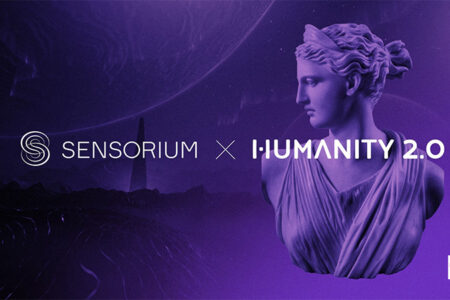The public-private partnership aims to extend the availability of the Vatican’s heritage – manuscripts, masterpieces, and academic initiatives – to people, who otherwise won’t be able to experience it.
Sensorium will also become the first metaverse developer to participate in NGO’s NFT and Digital Assets sub-committees to support the creation of best practices for both Humanity 2.0 initiatives and industry ethical leadership.
Sensorium, a leading metaverse developer, leveraging the latest AI, VR, and NFT solutions, has announced a strategic partnership with the Humanity 2.0 Foundation. The parties will work on the development of the first-ever VR and NFT gallery hosting Vatican’s art, content, and academic initiatives.
Humanity 2.0 is a non-profit organization tackling obstacles to humanity’s socio-economic and cultural development through leadership, media, and technology. This global project is chaired by Father Philip Larrey, Dean of Philosophy at the Pope’s University (Pontifical Lateran University) in Vatican City.
Sensorium is a global technology company, developing metaverse with the focus on high-quality immersive experiences ranging from ultra-realistic virtual shows performed by chart-topping artists, including David Guetta, Armin van Buuren, Steve Aoki, to interactive games and meditation practices. This vast digital environment is built by veterans of the gaming and VR industries in collaboration with entertainment powerhouses such as Jay-Z’s Roc Nation and Yann Pissenem’s The Night League.
The hope for the public-private partnership is to allow the development of NFT-gallery accessible in VR and desktop and featuring renowned masterpieces from the Vatican’s collection.
Read More: Back to listing WPP and Epic Games partner to accelerate innovation for clients in the metaverse
Father Philip Larrey, Chairman of Humanity 2.0: “We look forward to working with Sensorium to explore ways to democratize art, making it more widely available to people around the world regardless of their socio-economic and geographical limitations. The partnership with Sensorium brings this goal a step further and equips us with the latest tech solutions.
The Vatican is among the most visited art museums in the world, attracting over 6 million attendees a year. Its collection consists of nearly 800 artworks by 250 international artists, including Michelangelo, Raphael, Marc Chagall, Salvador Dalí, Paul Gauguin, Wassily Kandinsky, Vincent van Gogh, and Pablo Picasso. Founded in the 16th century, the museum hosts invaluable pieces of art history, ranging from renaissance and classicism to post-impressionism and surrealism.
Sensorium Galaxy is now in beta and is set to launch later this year. To ensure that it is a truly open experience, the platform will be accessible through the most widely available interfaces. Users can tune in using VR headsets to get a sense of true immersion, use a PC to access an augmented reality experience, or download the mobile application to watch streams, build unique NPCs and communicate with them.

